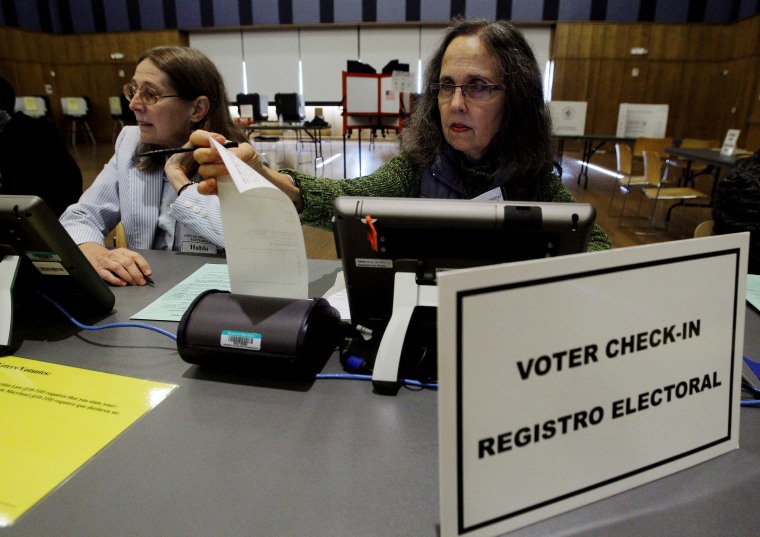Amid a national movement to make it easier for ex-felons to vote, Maryland could be next to take a step forward on the issue.
A bill that would allow most ex-felons to vote after being released from prison passed both houses Thursday and went to the desk of Gov. Larry Hogan, a Republican. Currently, ex-felons must complete parole and probation before getting their voting rights back.
RELATED: SCOTUS lets Wisconsin voter ID law stand; jurists see silver lining
“The governor is still reviewing that legislation and hasn’t taken a position yet,” Erin Montgomery, a Hogan spokeswoman, told msnbc. She said the governor is expected to make a decision in the next few days.
If signed into law, the bill would restore voting rights for an estimated 40,000 people.
Hogan is seen as a relative moderate. Last month, he announced his support for the Maryland Second Chance Act, which would make it easier for people with non-violent misdemeanors to shield court and police records after three years, helping them to find work.
But re-enfranchising ex-felons could hurt the GOP in Maryland. Currently, over 63,000 Marylanders are disenfranchised because of past felonies, according to numbers compiled by The Sentencing Project. Around 65% of them are African-American.
“We applaud the efforts of the courageous grassroots advocates across Maryland who fought for this legislation,” said Judith Browne Dianis, a co-director of the Advancement Project. “There are endless benefits to restoring voting rights for people released from incarceration, including the fostering of full community integration and the fulfillment of our core democratic principles."
Maryland’s neighbor Virginia last year dramatically reduced the number of people disenfranchised because of past felonies, when Gov. Terry McAuliffe ended the state’s practice of counting drug crimes as violent felonies. Kentucky, Minnesota, Iowa, and Florida have all see recent efforts to weaken felon disenfranchisement laws.
In Florida, which disenfranchises more than 10% of voting-age citizens, and nearly one in four African-Americans, because of past felony convictions, a petition drive is underway to get a constitutional amendment on the 2016 ballot that would restore voting rights for ex-offenders.
And last month, two Democratic senators introduced a bill that would restore voting rights in federal elections for ex-offenders upon their release from incarceration.
